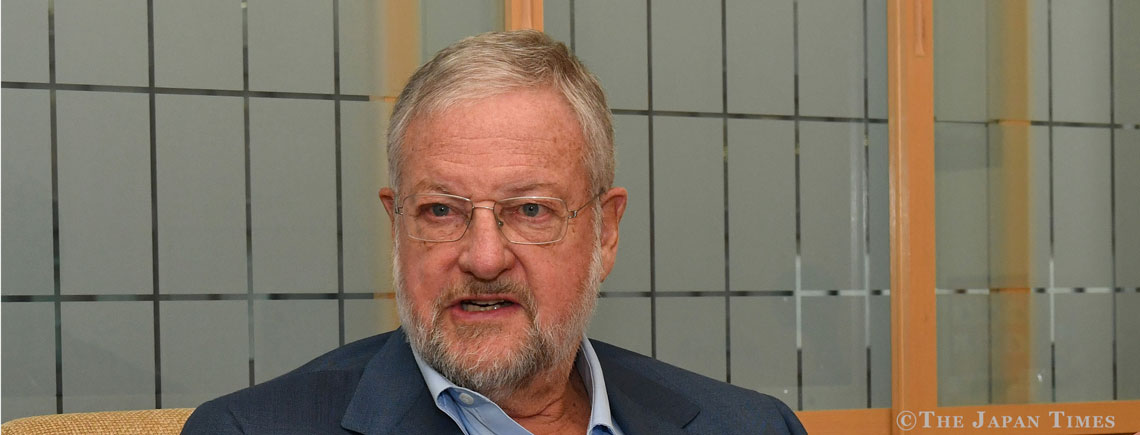To Wit: Rockefeller Speaks
This September, the Authors Guild Foundation will inaugurate “WIT: Words, Ideas, and Thinkers Festival,” a three-day dialogue that will explore the theme, Reimagining America.
Open to the public, it will draw together authors, novelists, playwrights and journalists to engage in a series of thought-provoking conversations, presentations, panels and speeches about topics such as identity and belonging, reexamining history, climate change, the U.S. Supreme Court and visions for our future.
The free presentations begin Thursday, September 22nd, with Dan Brown, author of The DaVinci Code, speaking on When Religion Meets Science. It continues through Saturday, September 24th, with the exploration of such topics as Reexamining American History with Yale history professors David Blight and Henry Louis Gates, Jr.; America and China: Comes the Moment with author Simon Winchester and Admiral Harry Harris, U.S. Navy (Retired); On Climate Change with authors Elizabeth Kolbert and Douglas Preston and Does the Supreme Court Have a Future? with Yale Law School lecturer Linda Greenhouse and Harvard Constitutional Law historian Nikolas Bowie.
Festival attendees will have the opportunity to interact with speakers in Q&A sessions, book signings and receptions. Dinners with speakers and additional special guests will be available for ticketed purchase. For a complete schedule, go to www.authorsguild.org.
There will be plenty of food for thought throughout the three days but all good things must come to an end. For WIT that will happen Sunday, September 25th, when the Authors Guild Foundation presents A Play, A Pint and A Picnic at 11AM. The play, the one-act comedy Community Service, was written by author, journalist and playwright Laura Pedersen and stars Paula Ewin and David Rockefeller.
Philanthropist and businessman David Rockefeller Jr said he became involved with WIT because Pedersen is a friend. “She has used me in a number of her writings and characterizations and I have appeared two times in different venues that put on this short play,” he said. “Laura Pedersen is an extraordinary writer and wit. In terms of the content of Community Service, I won’t give away the ending but I feel it is fitting in our time of divisiveness. The idea that there can be a positive resolution is a good one.”
In addition to his friendship with Pedersen, Rockefeller said he is familiar with the Berkshires from his association with the Boston Symphony Orchestra. As a graduate of the Harvard Law School and a great-grandson of Standard Oil founder John D. Rockefeller, he was expected to go into the family business. Instead, he took an abrupt 180-degree career turn and focused on music as assistant manager of the Boston Symphony Orchestra.
“After Harvard, I thought about a law firm,” he related, “but I followed my passion for music. That’s how I know the Berkshires, from when I worked for the BSO. I sang with the Tanglewood Chorus but I really worked in management. This will be a wonderful return.”
Rockefeller remained in the universe of the performing arts for two decades but “about half a lifetime ago shifted a lot of my effort to the family business.”
His shift from the stage to the board room came after some clear-headed self-assessment. “In my late 30s, I was singing professionally in a group,” he recounted. “It’s important to be honest with oneself. I could have afforded to be a singer but I asked myself if it would be a great loss to the world if I were no longer singing. I’m a talented singer but I decided there are so many other fine singers and I wanted to strengthen the family institutions. I had a special opportunity there that didn’t come to others—and it was the right decision because I didn’t have to give up the arts. It was just following another path.”
As a passionate supporter of the arts, Rockefeller is a trustee of the Asian Cultural Council and a life trustee of the Museum of Modern Art. He is also a fellow of the Academy of Arts and Sciences.
At the time of our interview, he had just emerged from a meeting held to discuss what paintings would grace the corporate walls of the family business in coming months. Paintings drawn from the family’s vast collection are rotated periodically to change the display.
The practice continues his father, David Rockefeller Sr’s, initiative. Rockefeller Sr lined the walls and filled office space on 56 floors above the streets at Rockefeller Center with hundreds of renowned masterpieces from his collection by artists such as Fernando Botero, Willem de Kooning, Paul Gauguin, Claude Manet, Pablo Picasso, Mark Rothko and others.
Rockefeller Jr noted that the employees get to enjoy real masterpieces as the backdrop for their daily endeavors. Having works of genius on the walls of corporate America is a far cry from the way art used to be presented. Until the 19th century, there were few venues where the public could enjoy art of any kind. Connecticut’s Wadsworth Atheneum, opened in 1844, is said to have been the first art museum in the nation.
“Orchestras and orchestral halls were also a creation of the late-19th century,” Rockefeller observed. “Music and art previously existed only in large private homes. This has been great period for the democratization of high art.”
He added that he is “delighted to be part of the WIT initiative,” which encourages everyone to participate in a free exchange of dialogue. WIT is free and open to the public to facilitate the exchange of ideas.
Unless otherwise noted, all events are on the campus of Shakespeare & Company. Tickets to A Play, A Pint and A Picnic cost $100 each and are partially tax-deductible. Both the playwright and performers will participate in a talkback after the show and the tickets also include a drink and an elegant picnic lunch with the author and cast.
For more information, please visit the link below.

